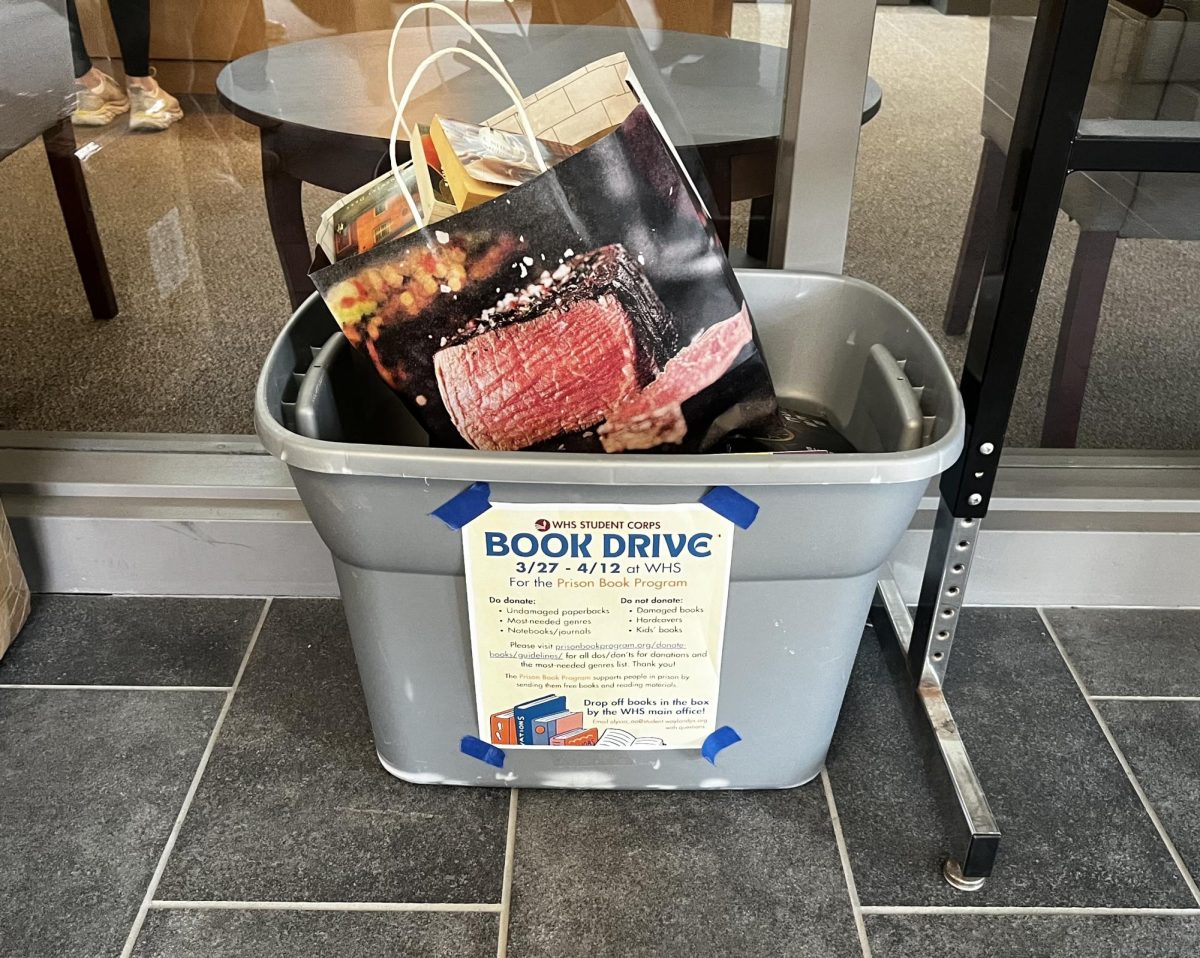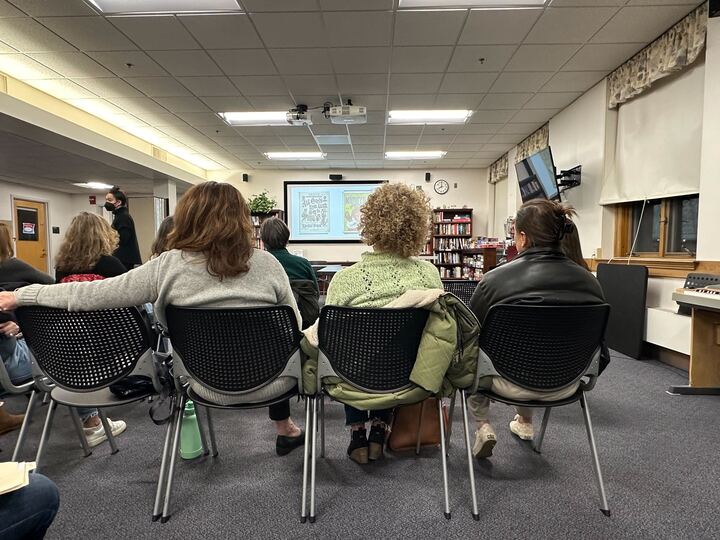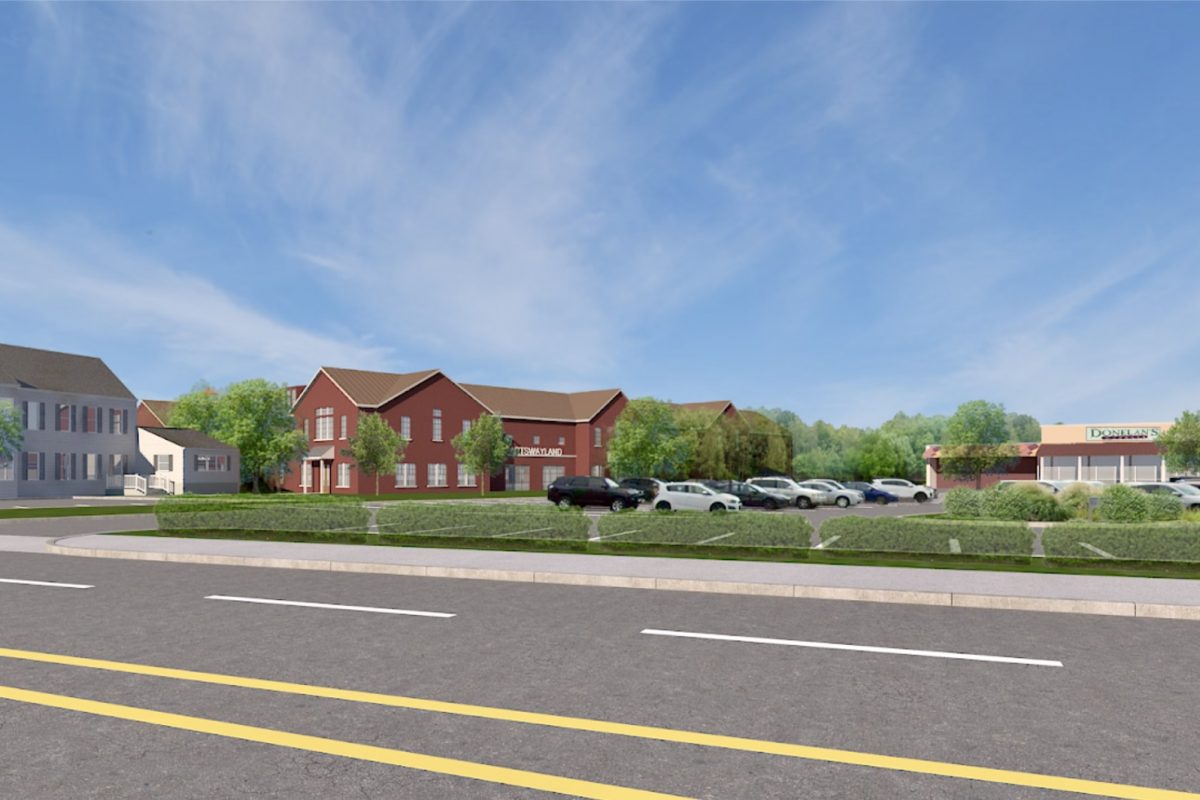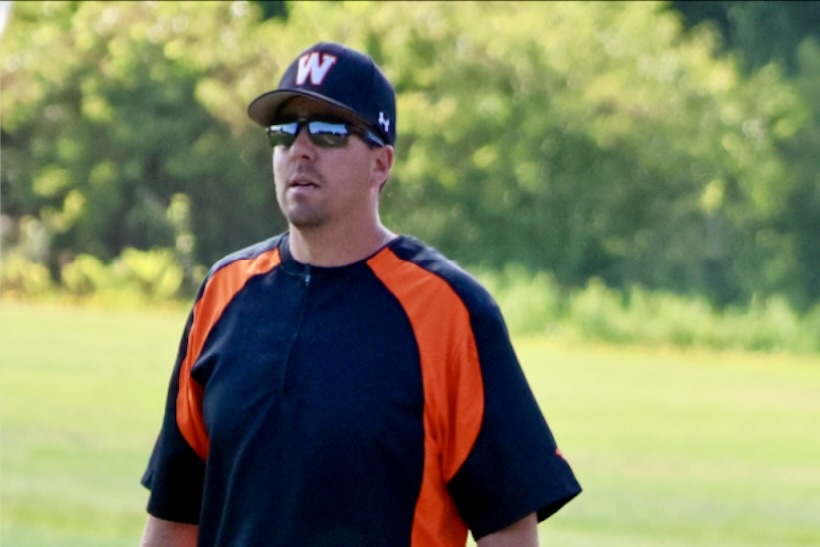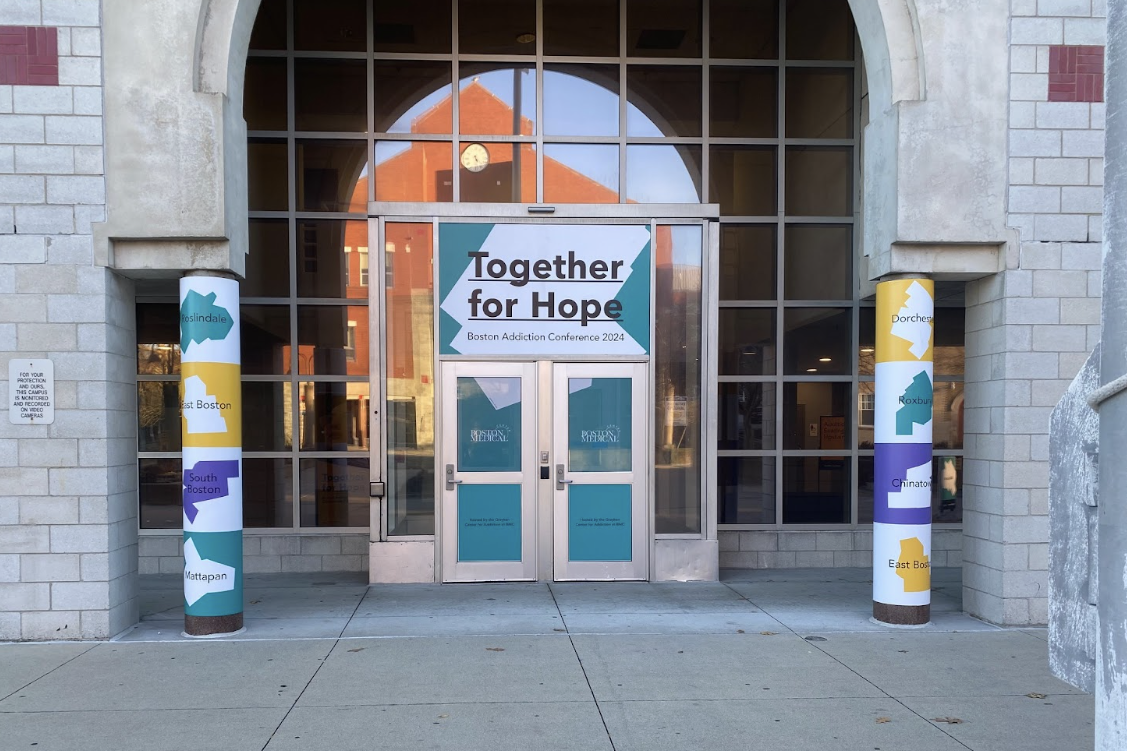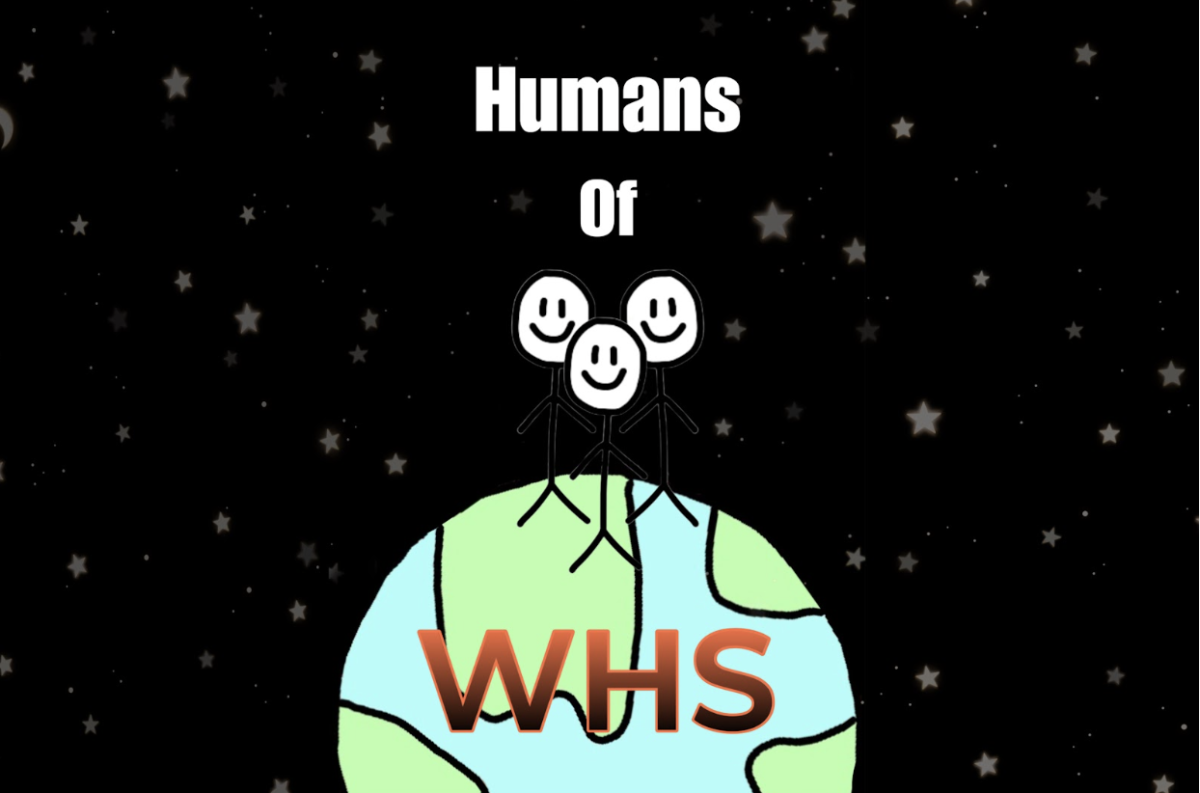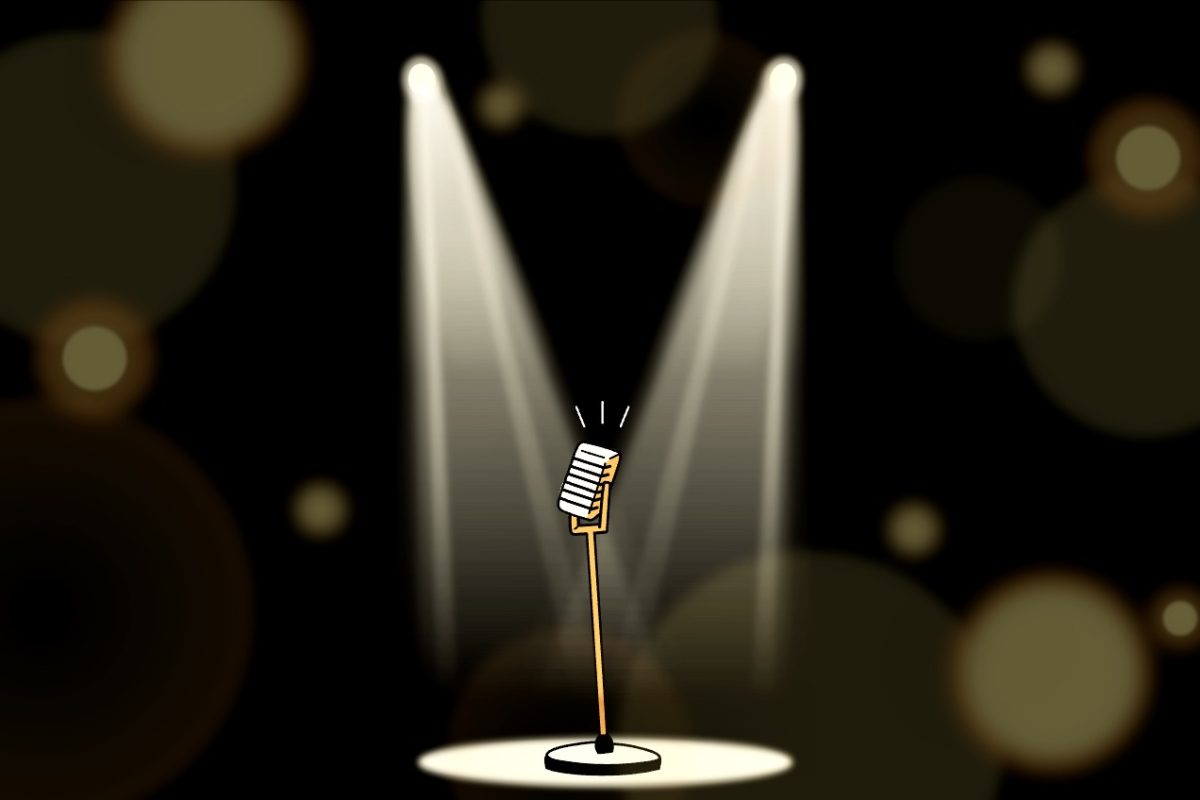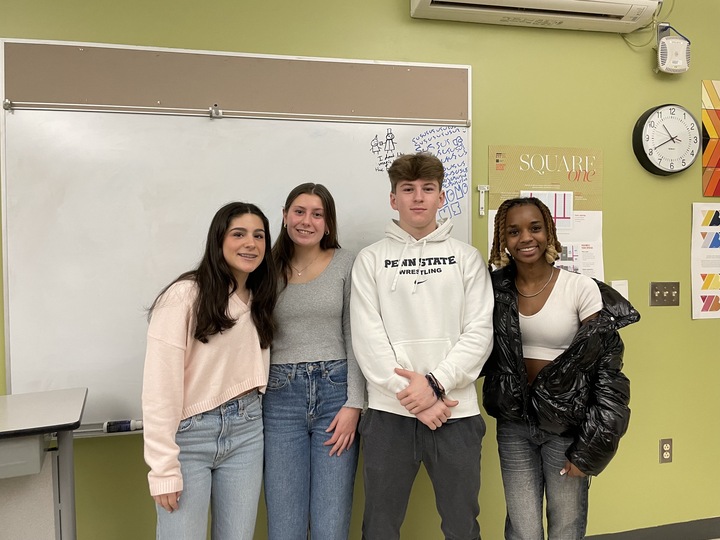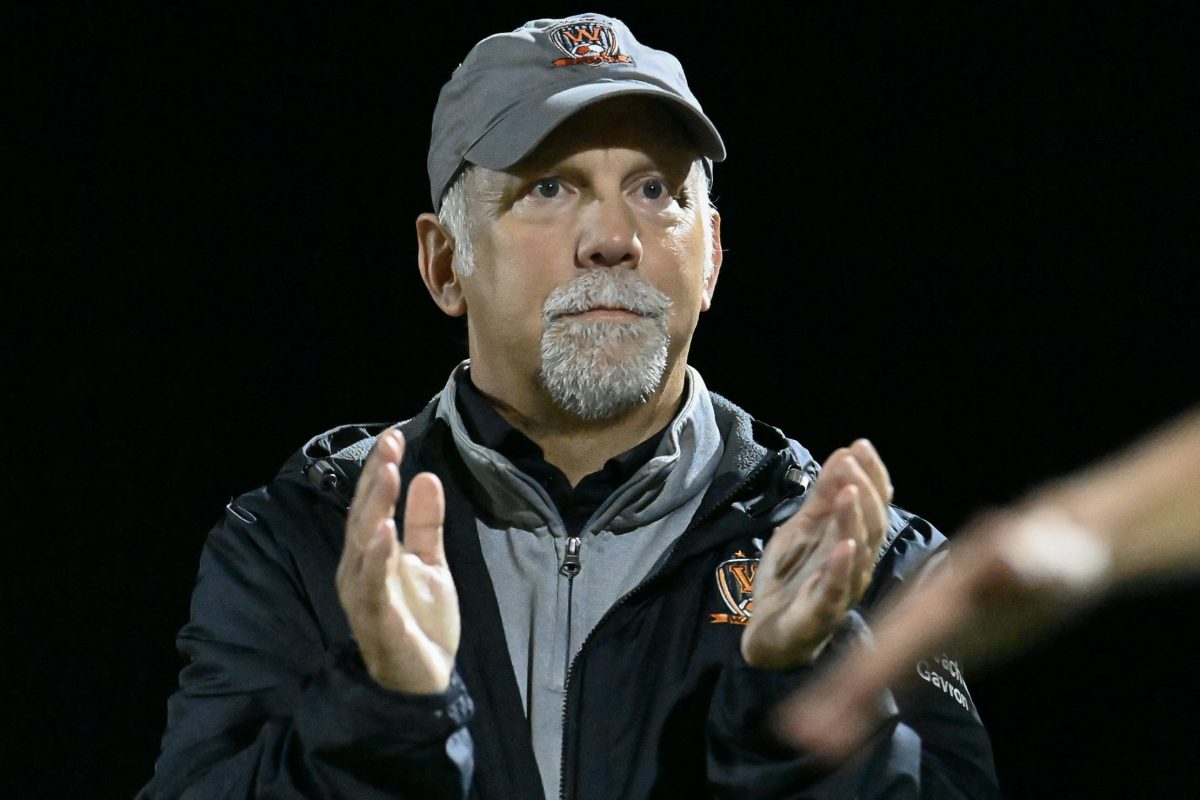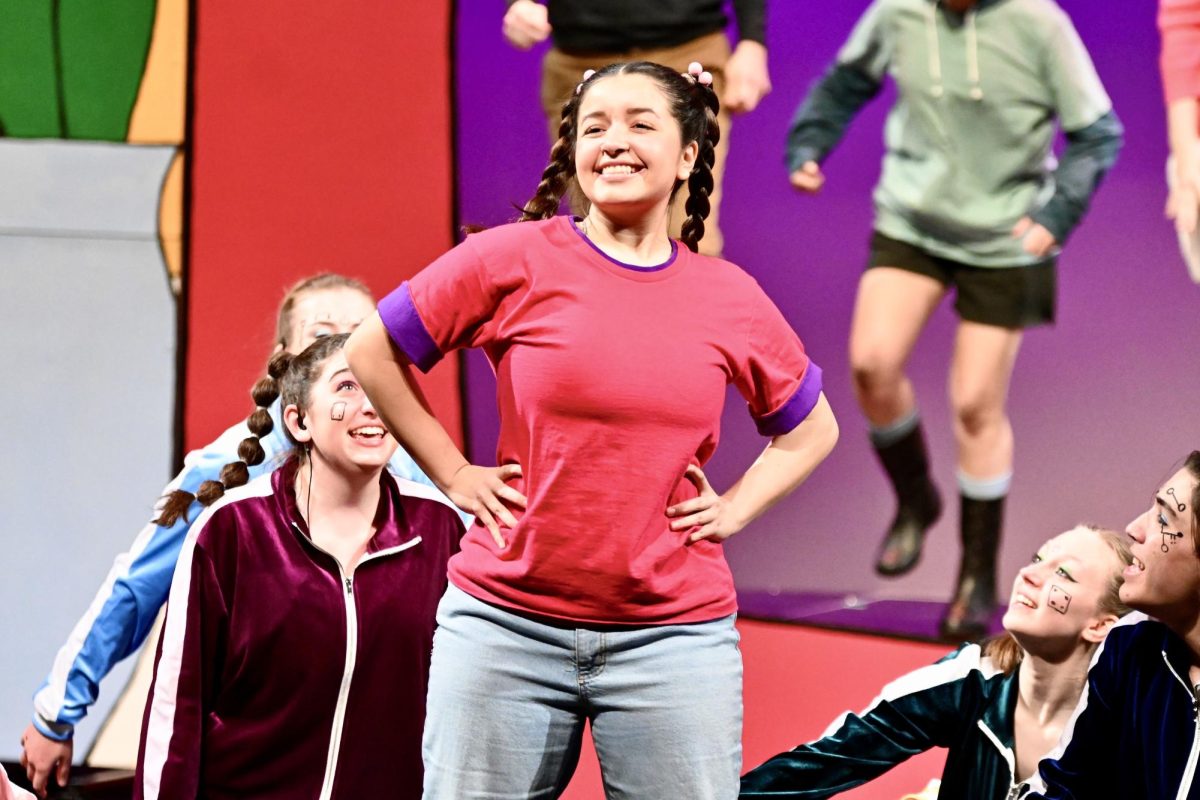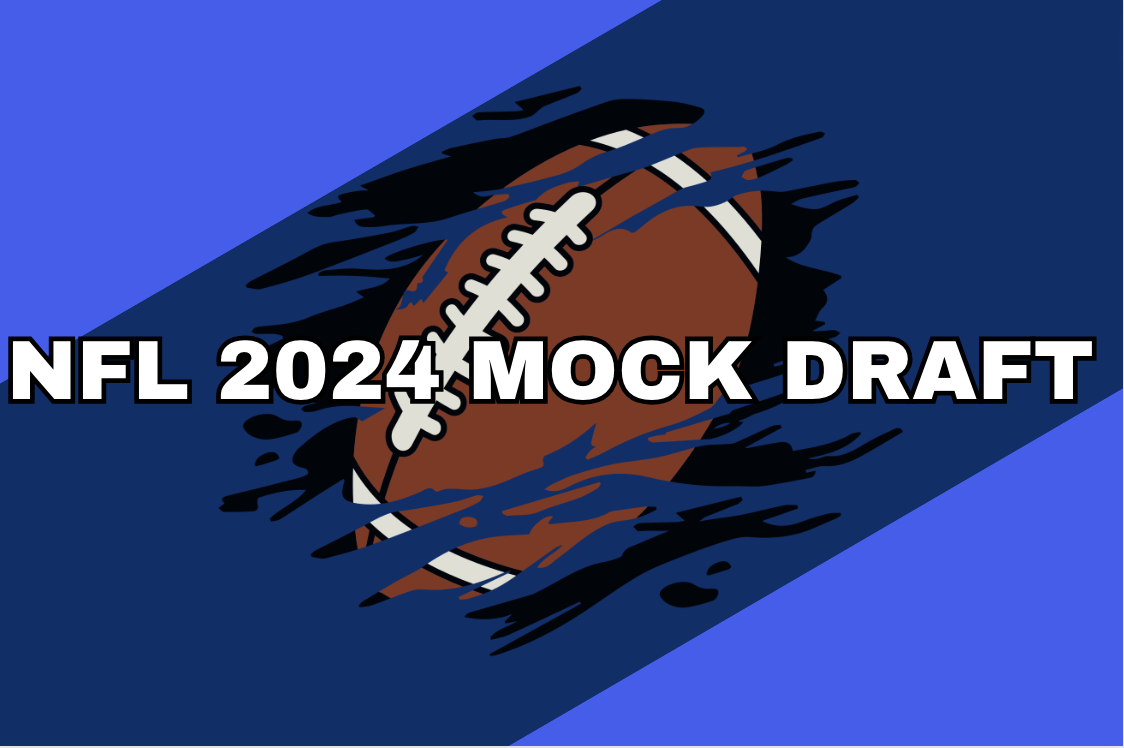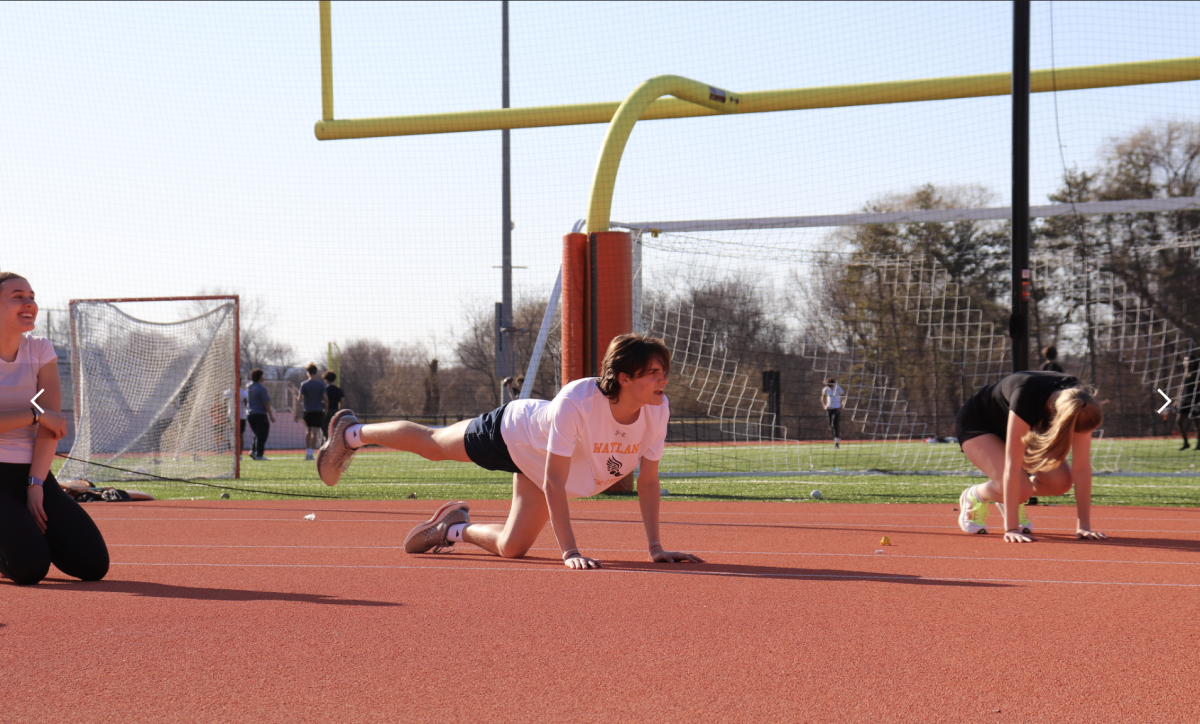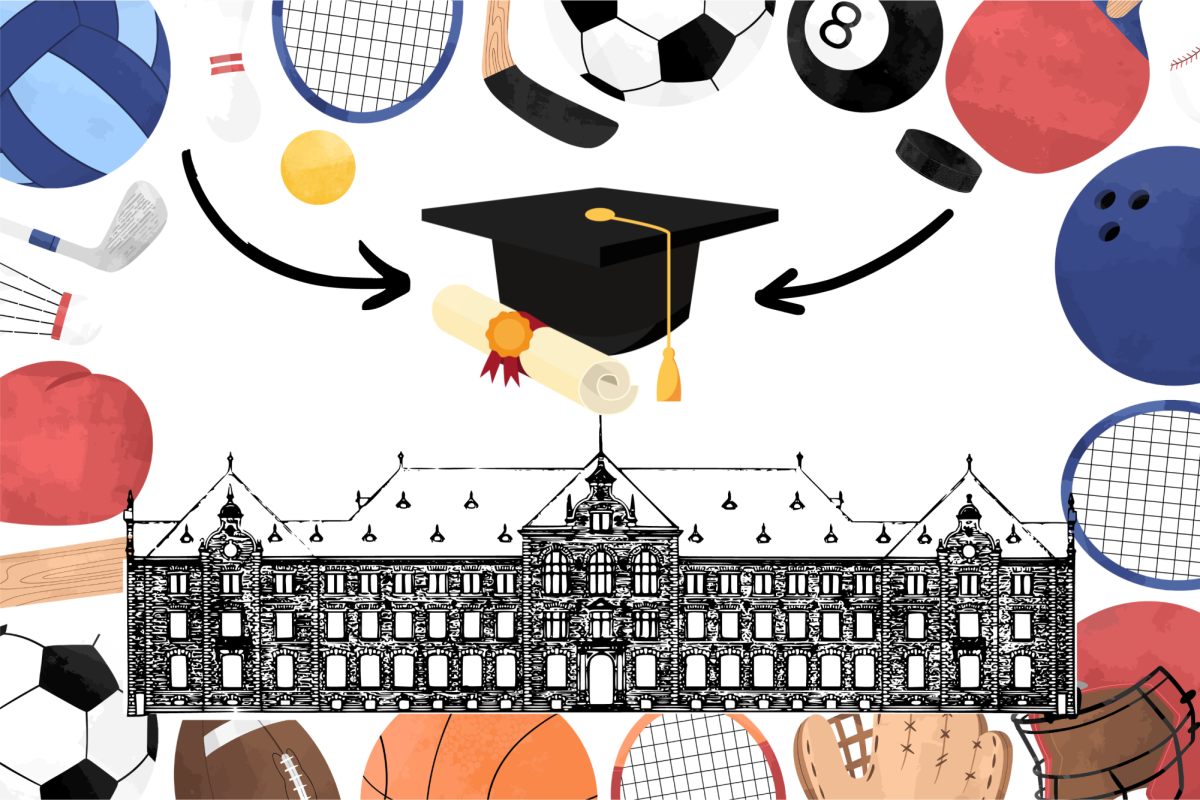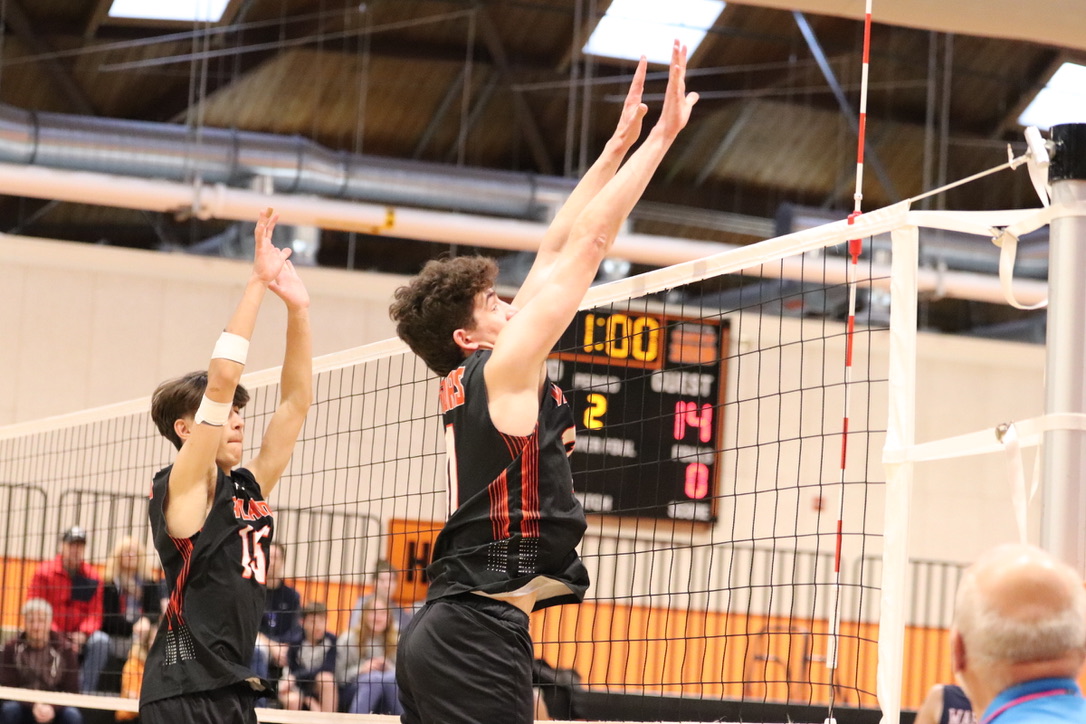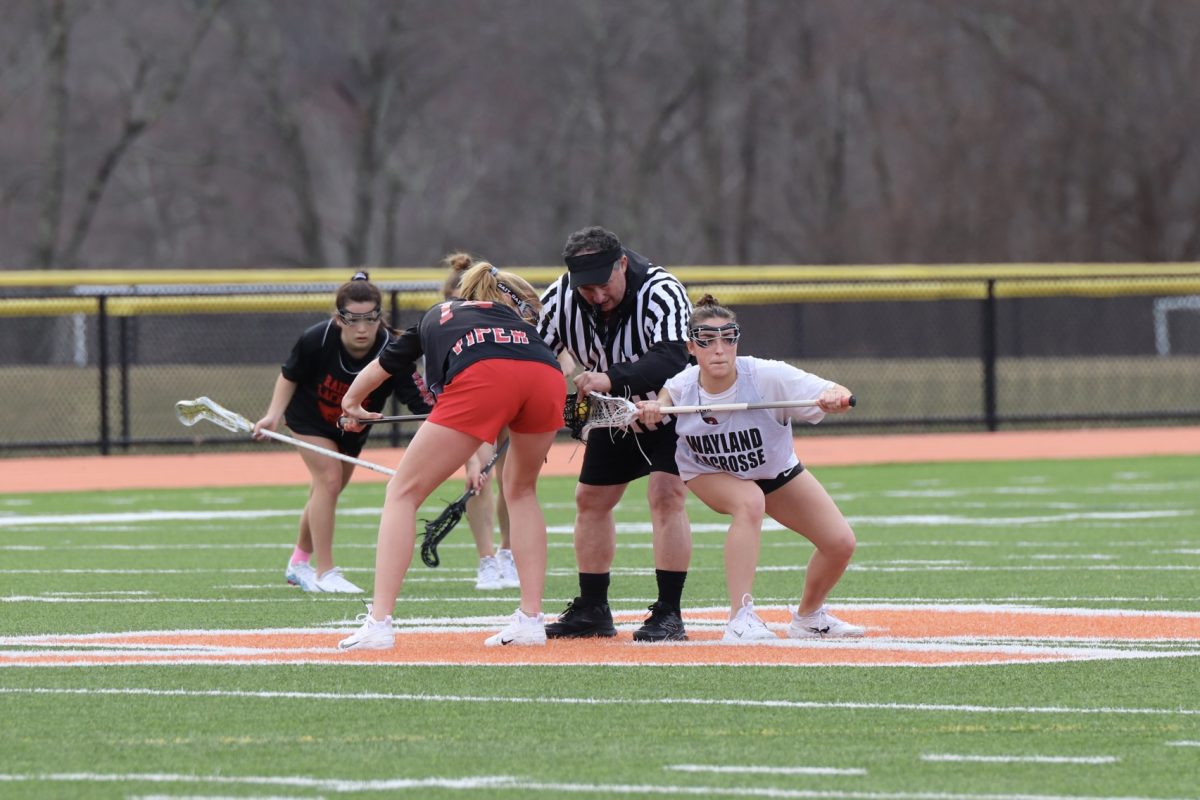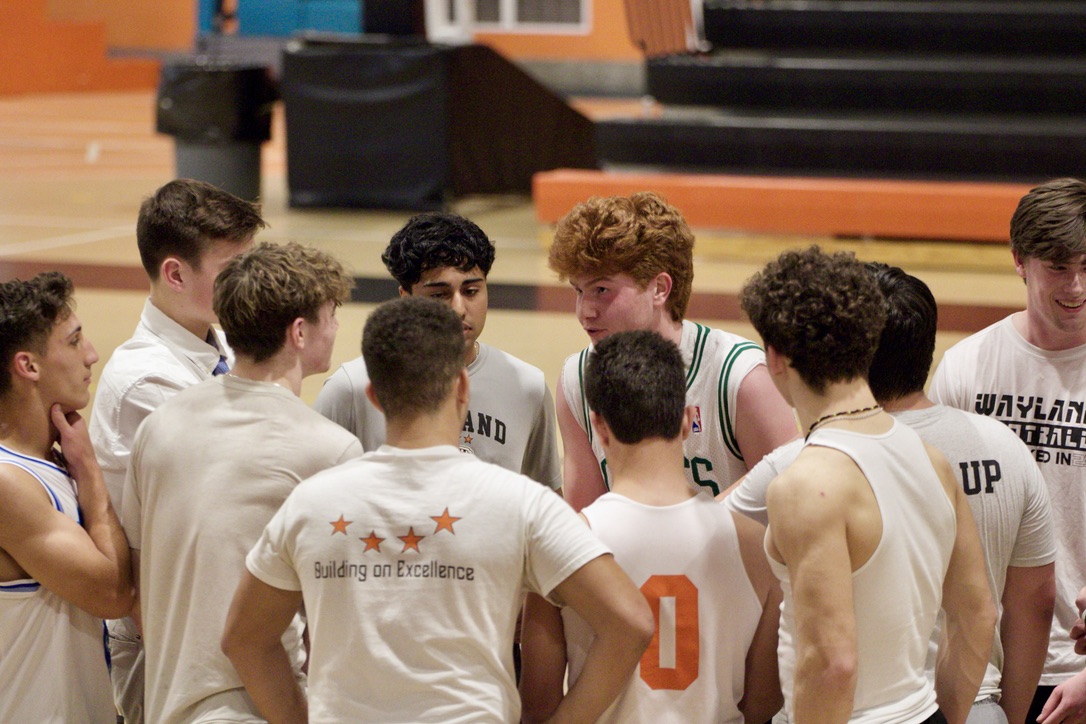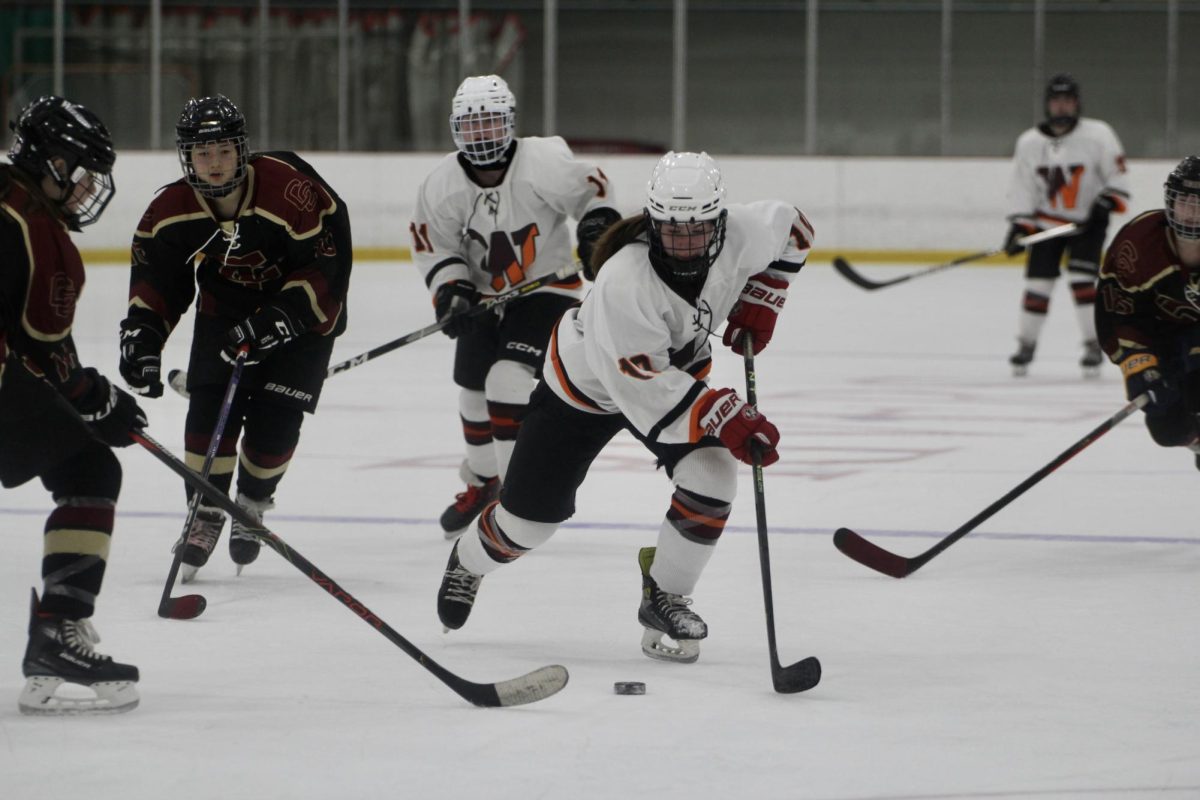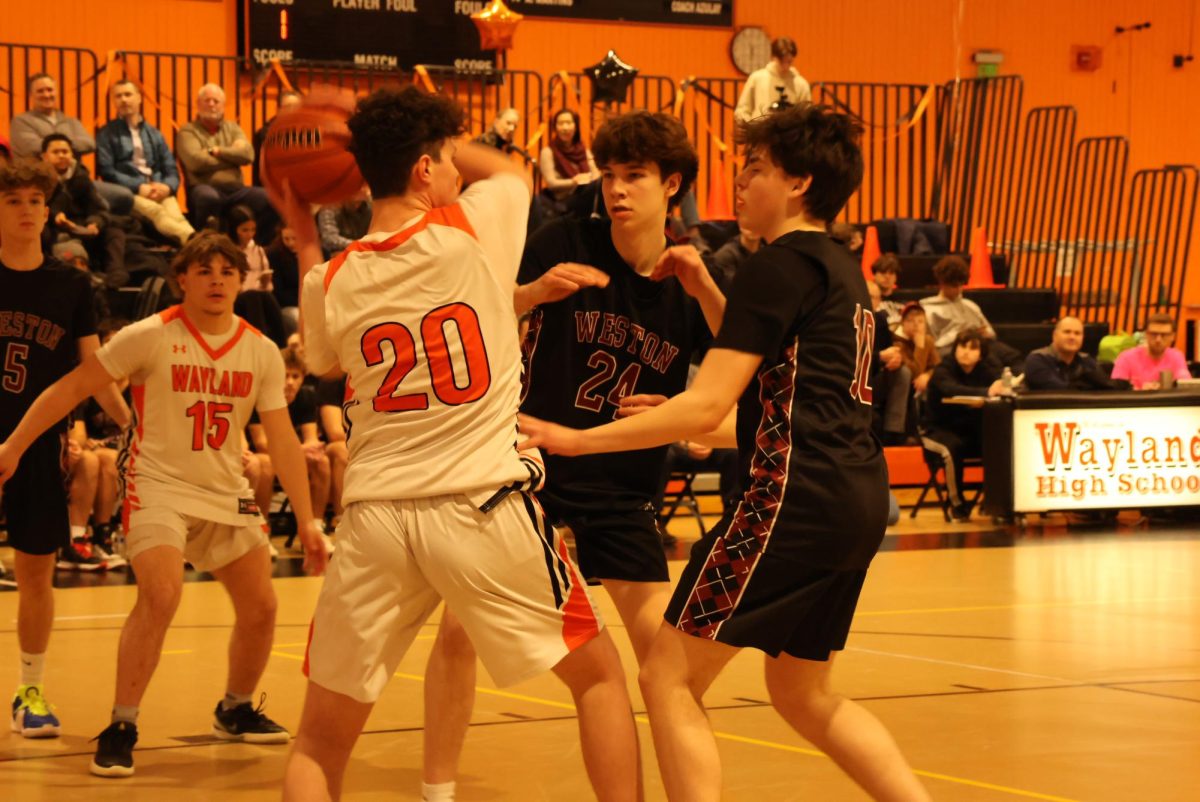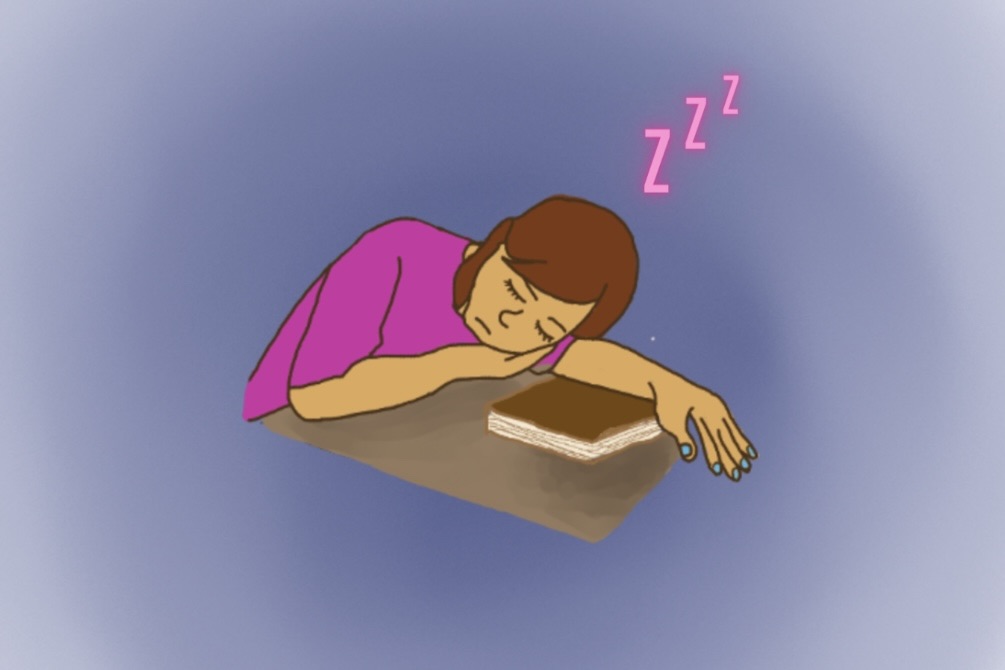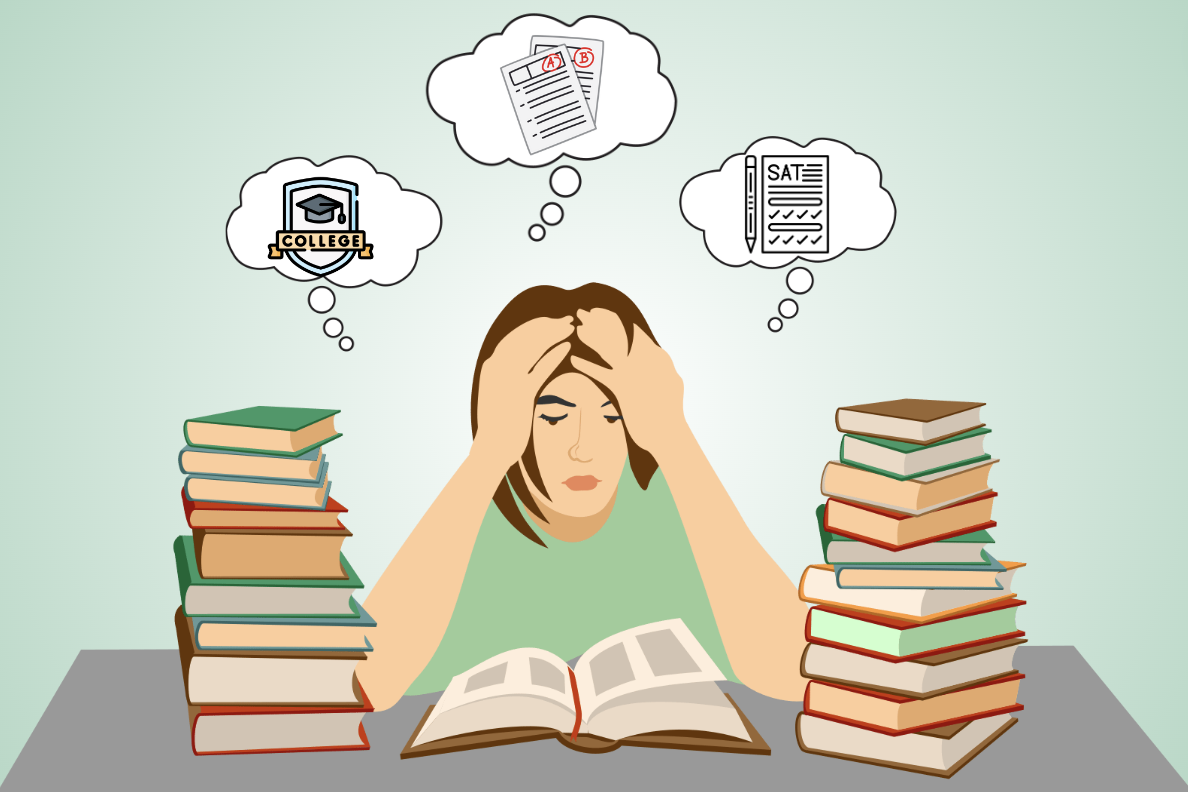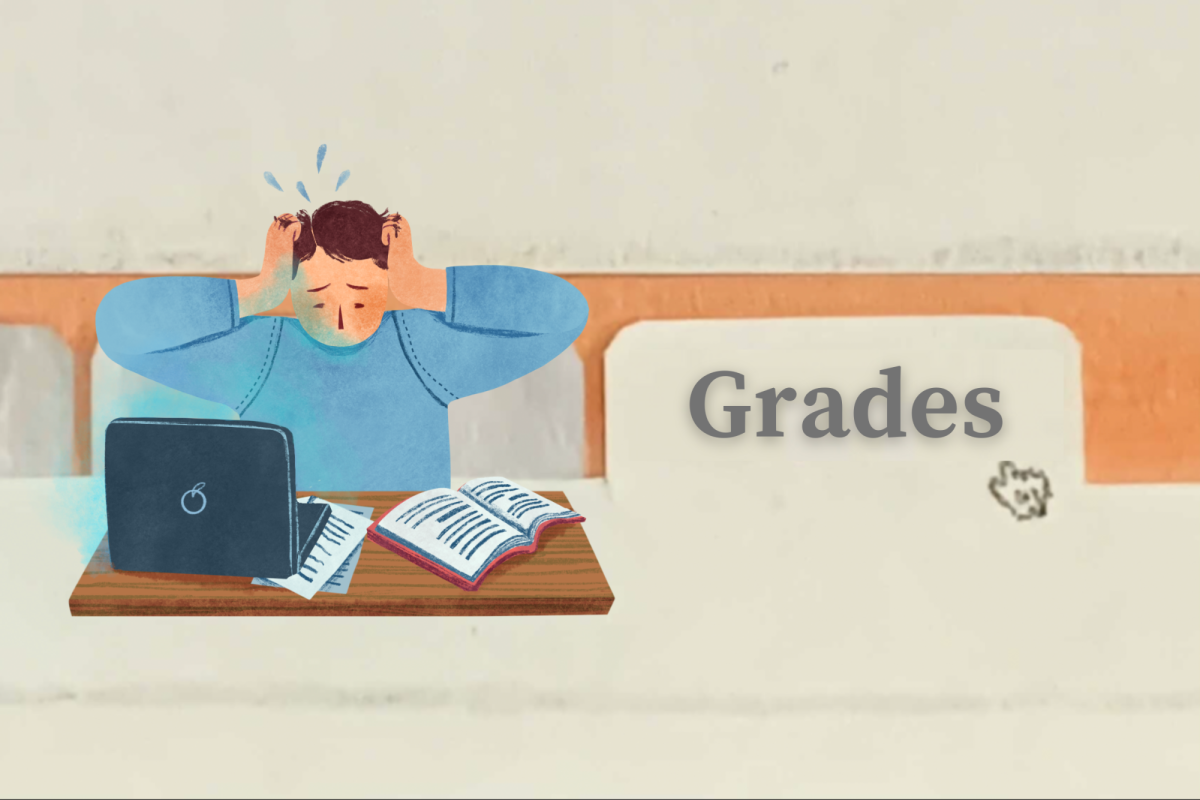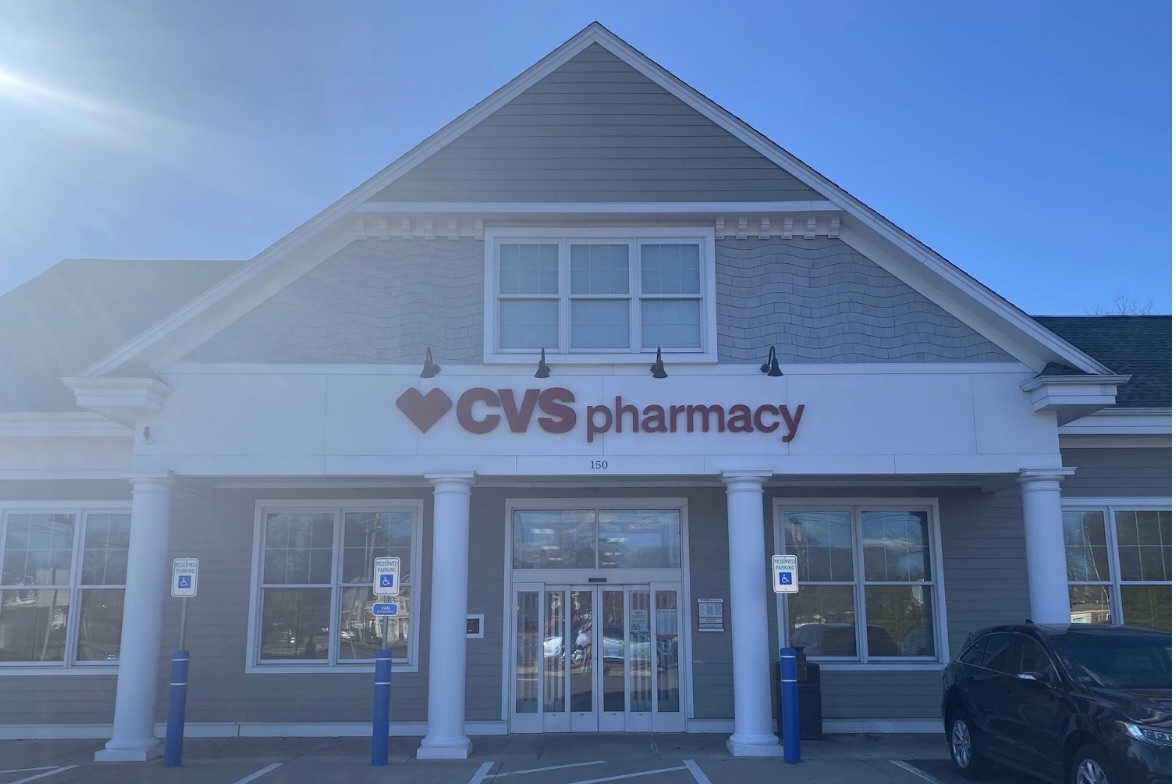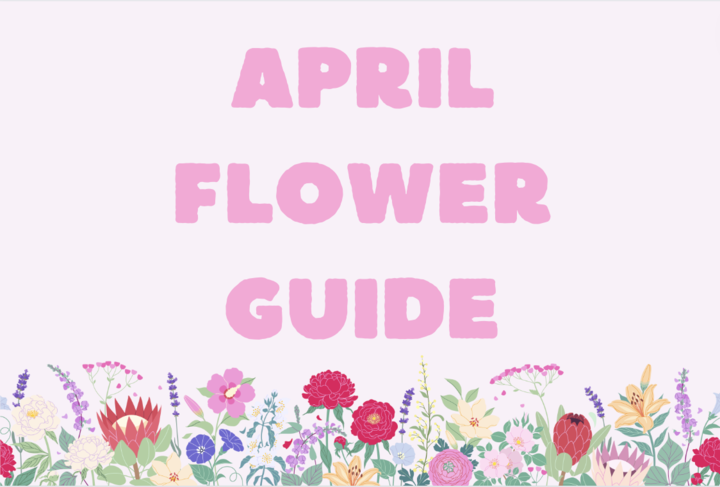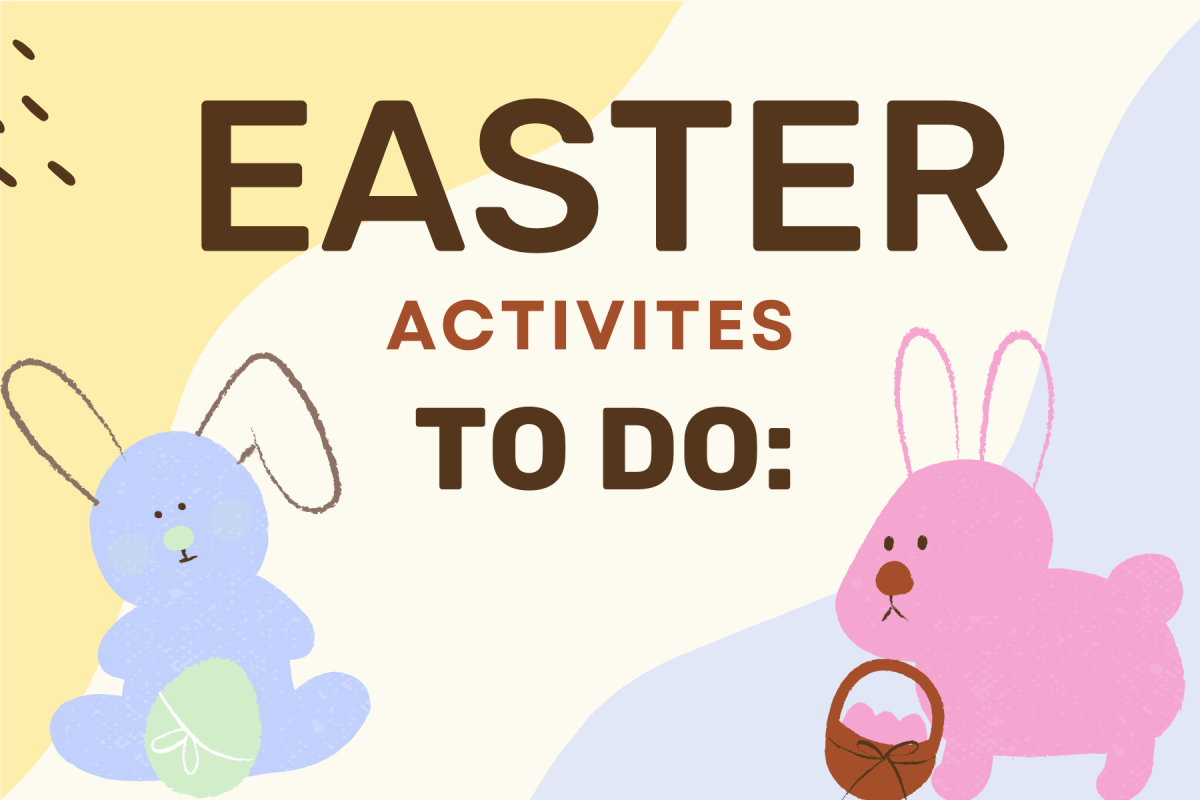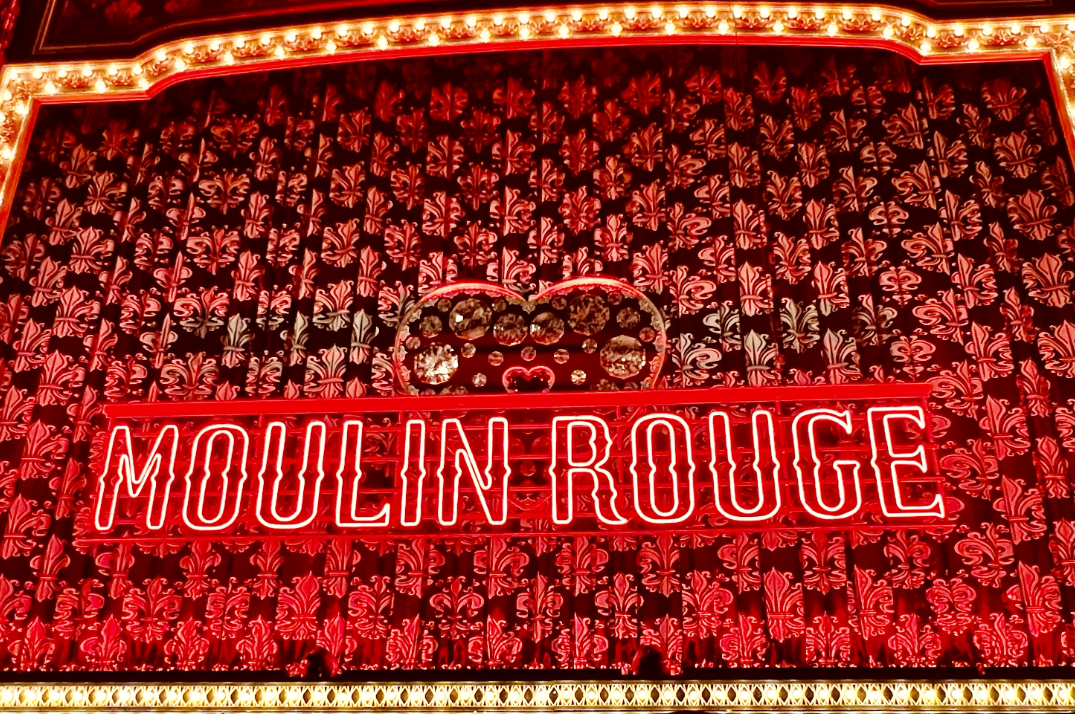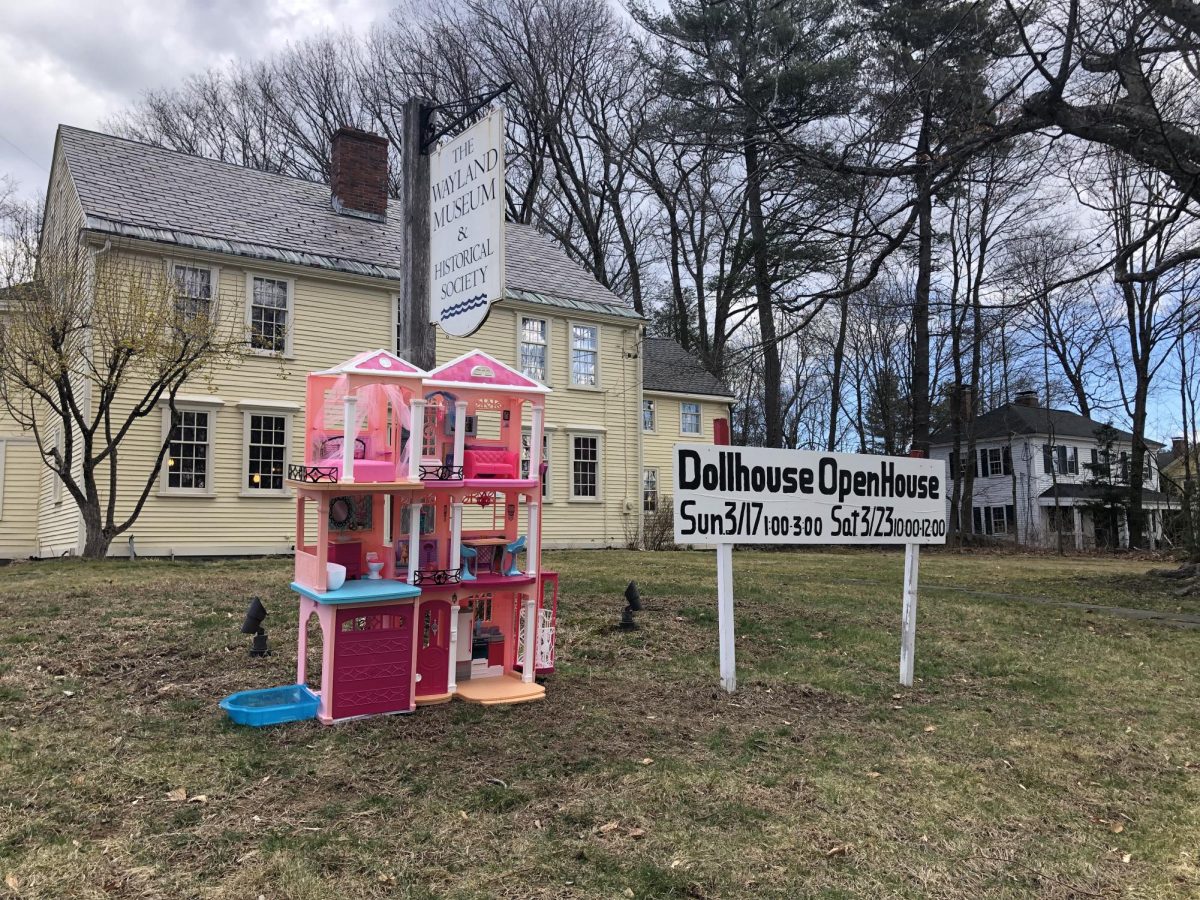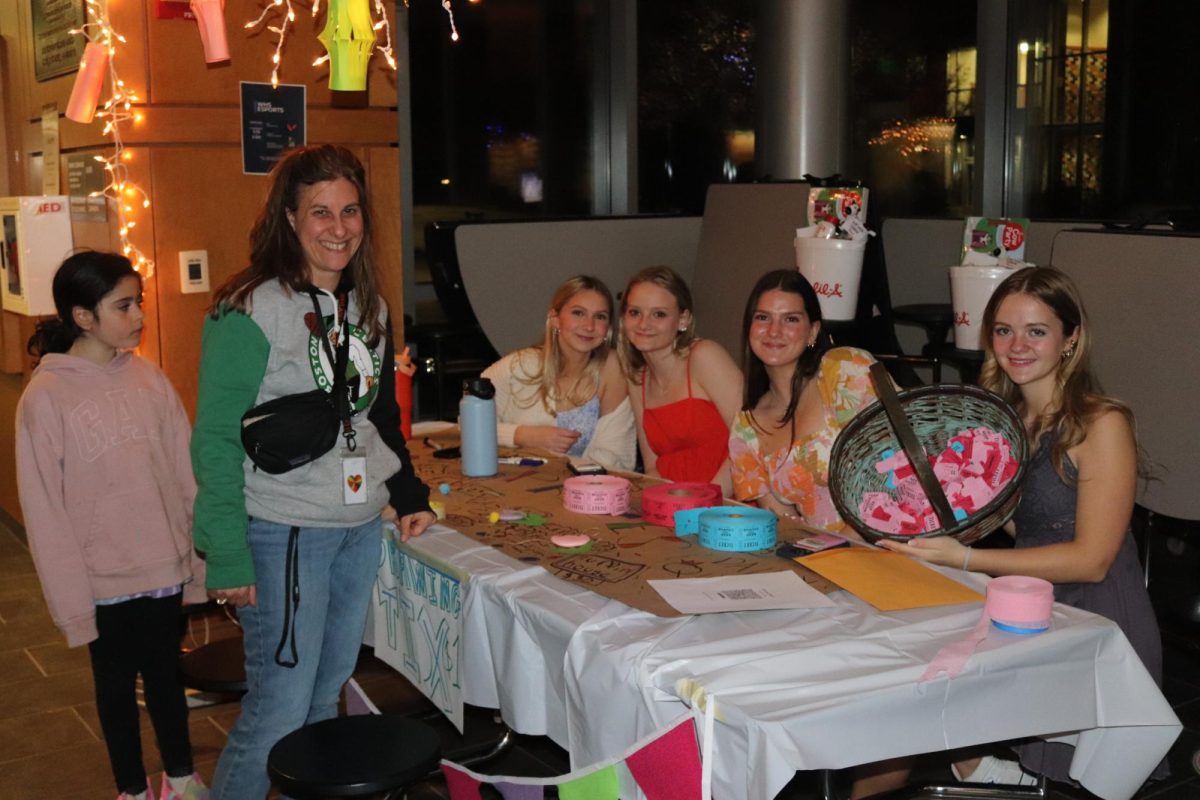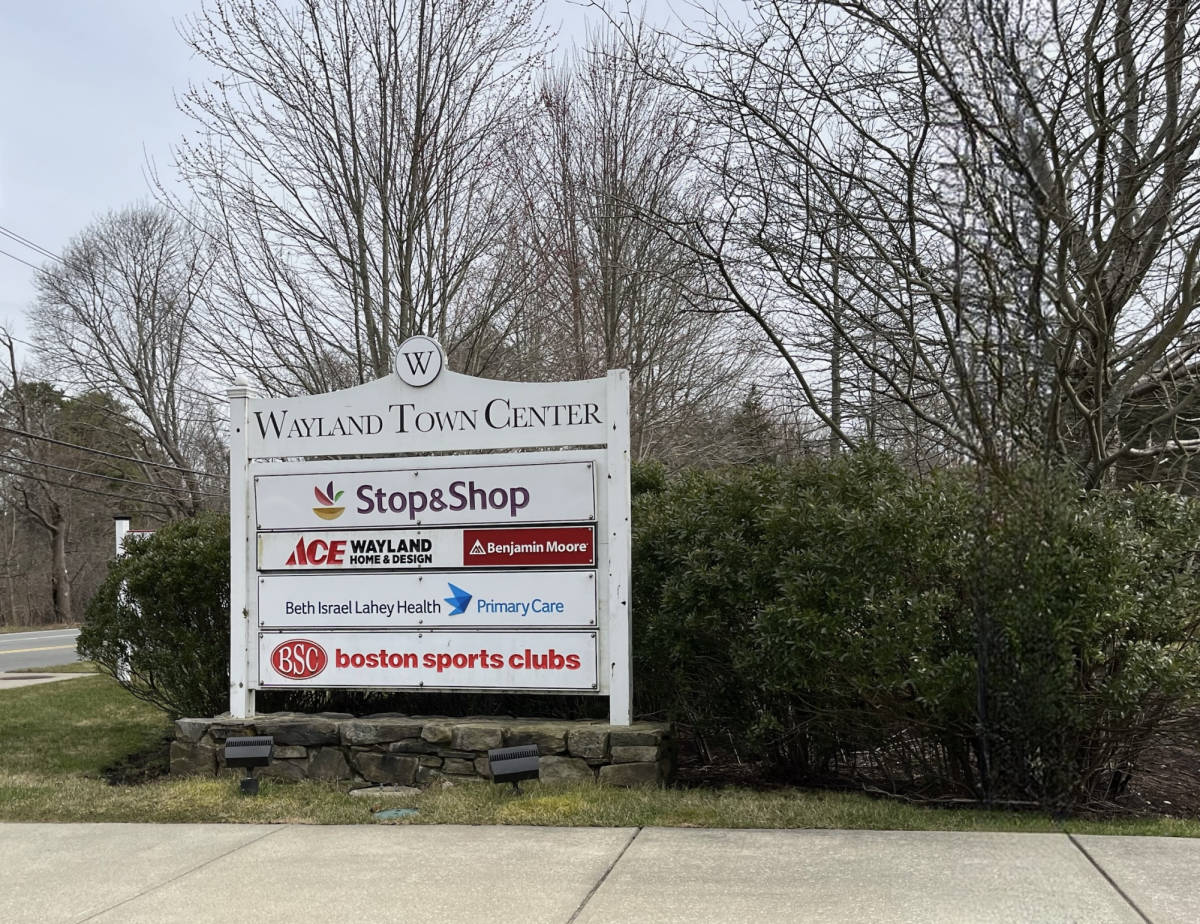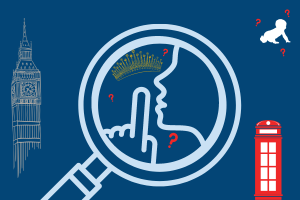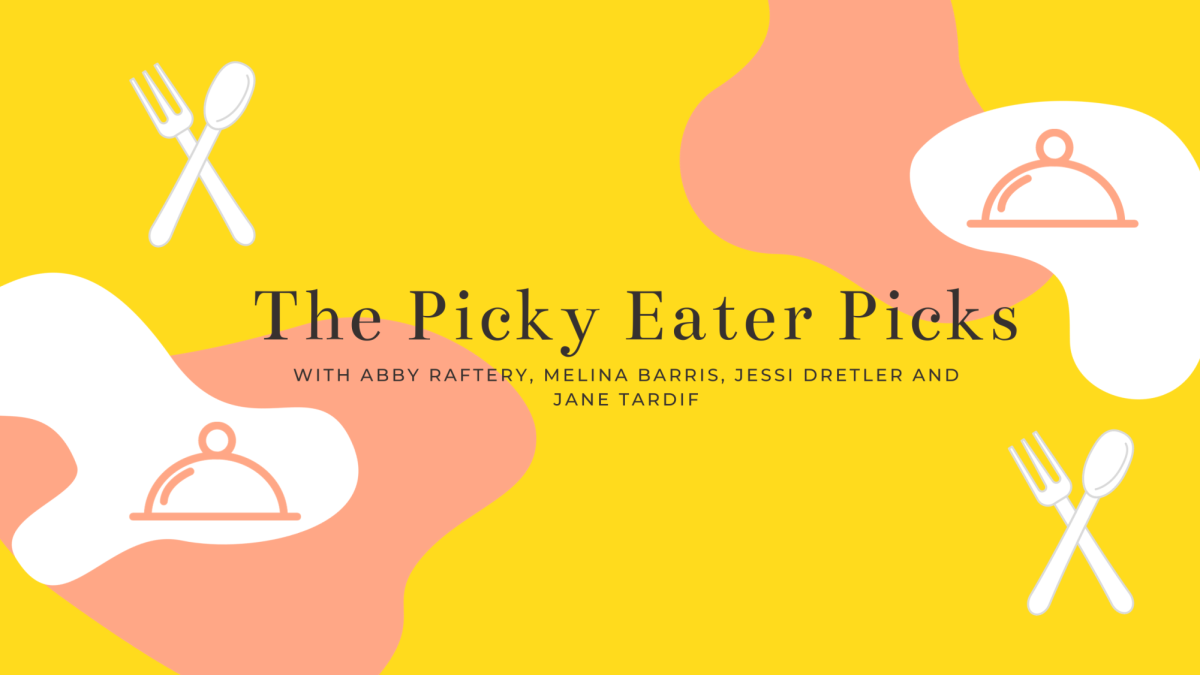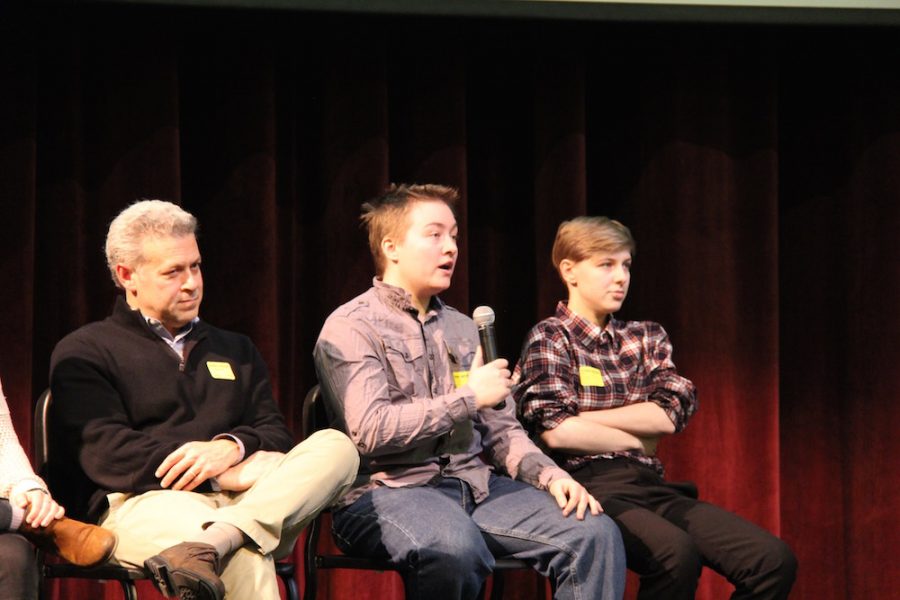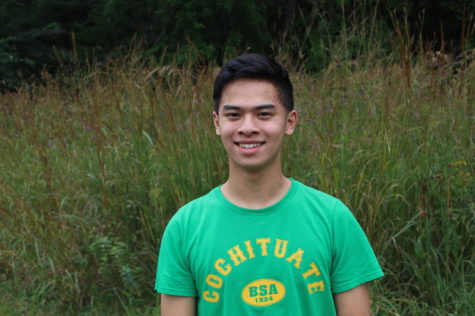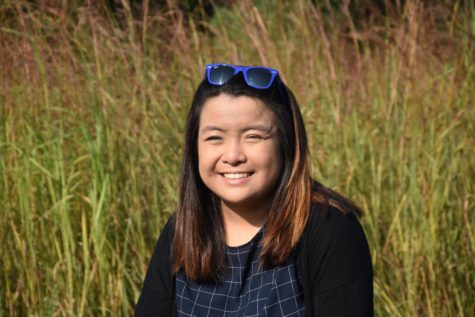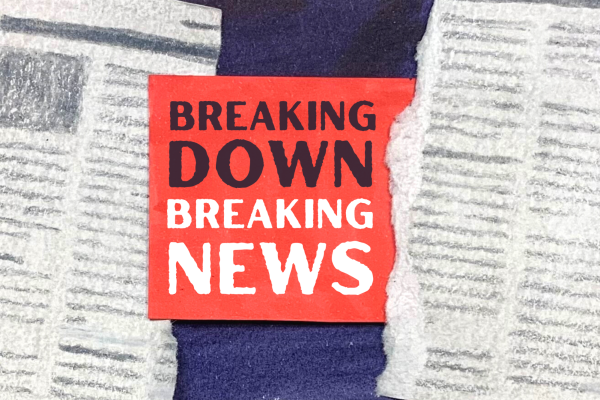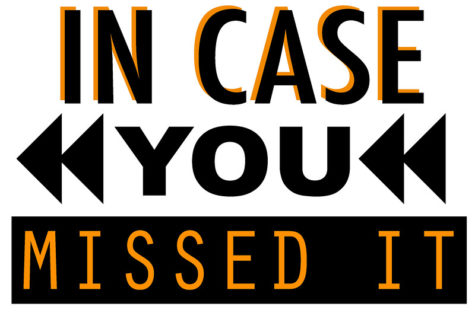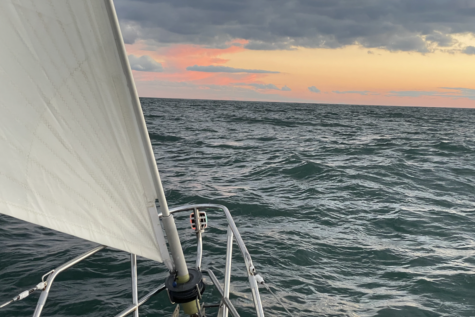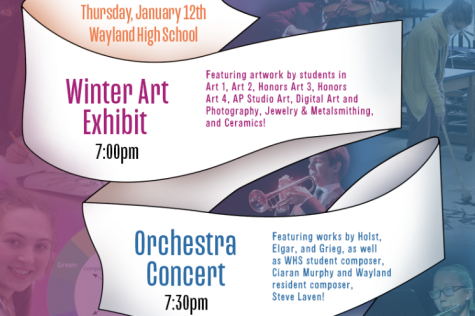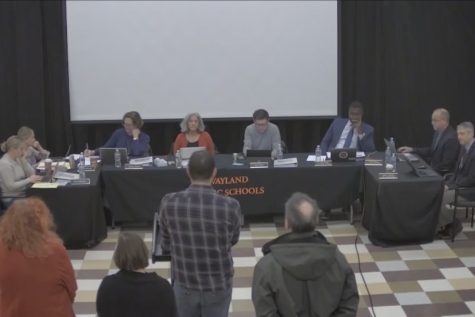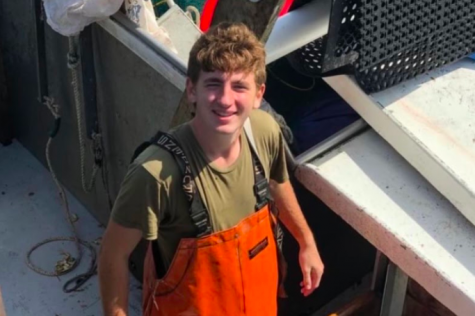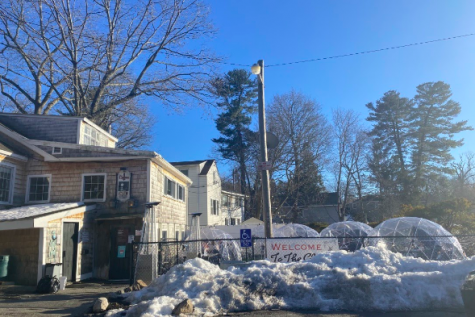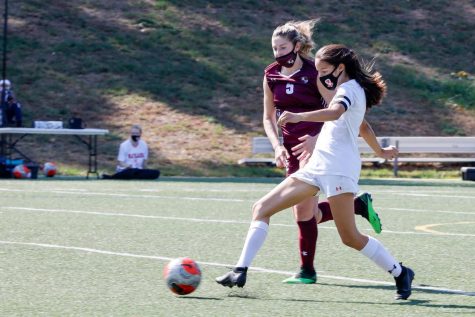WW ’17: WHS sophomores attend PFLAG presentation
Credit: Natalie Hsu
Pictured above are speakers from PFLAG. WHS sophomores attended a mandatory assembly from PFLAG last Friday as a part of the organization’s program with high schools across Greater Boston. “I really liked how it was entertaining, which captivated people,” sophomore Michael Fujita said.
February 7, 2017
On Friday, WHS sophomores convened in the auditorium for a mandatory presentation by the Greater Boston chapter of PFLAG, or Parents and Friends for Lesbians and Gays, a nationwide organization that describes itself as “the extended family of the LGBTQ community.” Annually given to the sophomore class as a part of Winter Week, students attended the presentation in place of their second block class, and a large portion of faculty was present as well.
Four representatives from PFLAG came to speak at the presentation. Executive Director of Greater Boston PFLAG Valerie Frias and PFLAG representative Sarah Horn began the program with an interactive presentation defining both the organization and the terminology that is used in their work with the LGBTQ community.
Their goal as an organization was made clear early on: to raise awareness and to work for a safer space for members of the LGBTQ community. The presentation provided a thorough list of how PFLAG intend to achieve safe spaces in schools, including a helpline, support groups, one to one program, advocacy and other initiatives. Also, the presentation included an infographic diagram that displayed different types of identities that students could have.
Next, Frias and Horn led a series of interactive activities for the audience. The activities involved the speakers making statements and audience members standing up if the statement held true for them. For some of the statements, Frias and Horn invited both students and teachers to share their experiences with the rest of the audience.
The latter half of the program belonged to the other speakers. Skailer Qvistgaard and Ethan Sobel both gave detailed accounts of their experiences as members of the LGBTQ community; Qvistgaard as a gay transgender man and Sobel as a gay man.
Horn added her story as well, describing growing up while attending a Catholic private school. Each speaker included important points in their stories, including the importance of being an ally and advocating for your LGBTQ peers.
The presentation concluded with a question and answer session between the audience and the speakers.
According to Frias, this is at least the fifth time PFLAG has presented to WHS sophomores.
“In some cases we reach out to schools, but in this case [LRT teacher Naomi] Rosenthal was very proactive,” Frias said. “She emailed us, called us and invited us to make a program.”
“We want to spread the message of acceptance and support,” Frias said. “We want LGBTQ students at WHS to feel safe and supported in their school community in ways that they may or may not be at home.”
“[We would like] LGBT students to have that home away from home if they need it or be able to grow their support system,” Frias said. “We also want to create a space where allies and advocates feel they can stand up for their friends and be that support and sort of advocate beyond.”
According to Horn, there are many ways that students can become upstanders for the LGBT community.
“It’s really about being open [and] making it visible that you’re an ally and advocate,” Horn said. “[Being an upstander is also about] just being able to check in with your friends [and] saying ‘hey, how’s it going?’”
Horn also noted the difficulty in the “coming out” process for many students and suggested methods for friends to ease the process.
“Talking to your friend about what their coming out process is like for them [is important],” Horn said. “Just because a student comes out to their friend, it doesn’t mean that they’re ‘out’; it means that they’ve come out to their friend and that they may have other friends or teachers to come out to. So just be supportive in that process.”
“Be vocal and be visible,” Qvistgaard said. “Even if you aren’t particularly friends with LGBT students or know anyone who’s LGBTQ at WHS, be open and be vocal. Be an ally and an advocate anyway because you never know who might be thinking about coming out.”
Frias said that students should be vigilant and observant for negative comments.
“[Even if a negative comment] might not be directed at any individual in particular, say something,” Frias said. “Step up and say ‘that’s not okay,’ or ‘that hurts people; it hurts people in our community.’”
Qvistgaard believes PFLAG’s biggest obstacle to achieving their goals is the idea of fear.
“There’s a fear that if you speak out, someone will call you gay. [There’s] a fear that you won’t be accepted by your friends anymore because you’re standing up for someone they might not know,” Qvistgaard said. “Overcoming the fear that there is going to be a backlash against you as an ally is one of the things that I know my friends and I had to struggle to overcome in my school.”
However, Qvistgaard noted that it is important for students to trust they are doing the right thing.
“If people have a problem with you being an advocate or being an ally, you [should just] stand up and do the right thing,” Qvistgaard said. “You’ll remember years from now that you did the right thing.”
Frias said she hopes PFLAG will extend to middle schools in the future because she finds that students are coming out younger and younger.
“[Middle school is] really the age we want to reach [students] at,” Frias said. “The fifth grade to eighth grade window is when they’re really transitioning and thinking about [coming out].”
Frais also cited research that shows in 2017, there is more LGBT bullying and harassment in middle school than high school.
“In addition to high schoolers, we’re targeting to reach out to about 20,000 students in K-8 schools to provide general education like this [presentation],” Frias said.
Frias also noted the importance of having a safe workplace for LGBT employees and how she wants to instill this in the students she works with.
“[It’s important to have a] safe workplace that affirms your identity,” Frias said.
Many WHS students who attended the presentation felt it was helpful and meaningful.
“I learned about [Sobel, Qvistgaard, and Horn’s] stories, which were very interesting,” sophomore Madison Lehr said. “It’s a good way to know people, understand all our differences and celebrate diversity.”
“I thought it was very well done,” sophomore Emma Marton said. “I heard the stories and I thought the student body was very connected.”
“I really liked how it was entertaining, which captivated people,” sophomore Michael Fujita said. “The stories showed a lot about what people’s lives are like in the LGBTQ community.”
Fujita said he learned two new terms from the presentation: cisgender and queer.
“I learned how queer can be used as an umbrella term and how it doesn’t have to be used in a negative connotation, and I’ve realized that small things can really make a big impact,” Fujita said. “You never know who around you is affected, so you always have to be cautious, aware and respectful.”
Lehr, Marton and Fujita all agreed that the presentation should’ve been mandatory.
“[The presentation is] very eye-opening, and it’s important to support everyone in the school,” Lehr said. “It’s something that will help all students in the school.”
“I think some people might just think ‘Oh, that’s a waste of time,’ but they’re missing out on a lot of information and they have to get that from somewhere,” Fujita said.
On the other hand, sophomore Andy Wang chose not to attend the presentation. According to Wang, it was because he had a free period during the block. He did not believe that presentation should’ve been mandatory.
“I don’t think I would’ve learned anything [from the presentation],” Wang said.
Wang said that although he supports gay marriage, he generally has a more conservative stance on LGBT issues.
“I am not exactly a supporter of people who say they are more than two genders,” Wang said. “I believe there are only two genders. I am accepting of those who identify as LGBTQ, but I don’t want it flaunted in my face.”
“When people say ‘call me by the pronoun ‘Z’ or something,’ I’m not going to do it,” Wang said. “But ‘they’ is fine.”
“I think that you’re just hurting yourself,” Fujita said regarding students who skipped the presentation. “You’re missing out on a lot of information that could be helpful.”
Fujita and Qvistgaard both believe the recent election and inauguration of President Donald Trump has negatively impacted the culture around LGBT issues in the country and in schools.
“Some of the recent political changes have given people permission to be rude, to be discriminatory [and] to hurt people, on purpose or not on purpose,” Qvistgaard said. “[It causes people] to not care anymore.”
“[Trump] won’t have the power to change the legalization of gay marriage; however, I think that he’s a lot less respectful and a lot less presidential with his language,” Fujita said. “[As a result], people may think it’s more acceptable to be offensive or not be afraid to be racist or sexist, so I think it has a big impact on society.”
Wang had a slightly different viewpoint.
“I think [President] Donald Trump and [Vice President] Mike Pence, Pence especially, have less support for gay marriage [and LGBT issues],” Wang said. “[However], I don’t think Trump is going to go as far as to do anything bad about [LGBT issues].”
Greater Boston PFLAG’s website has resources and information for all who would like to learn more about topics covered in the presentation and more.


